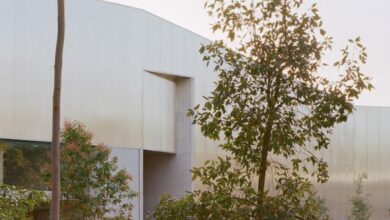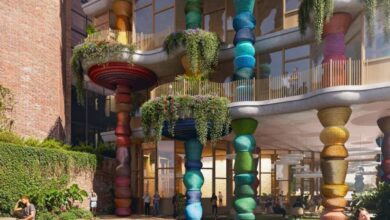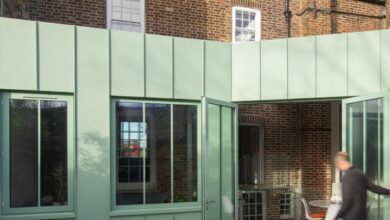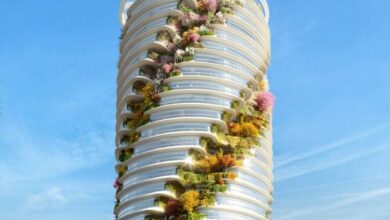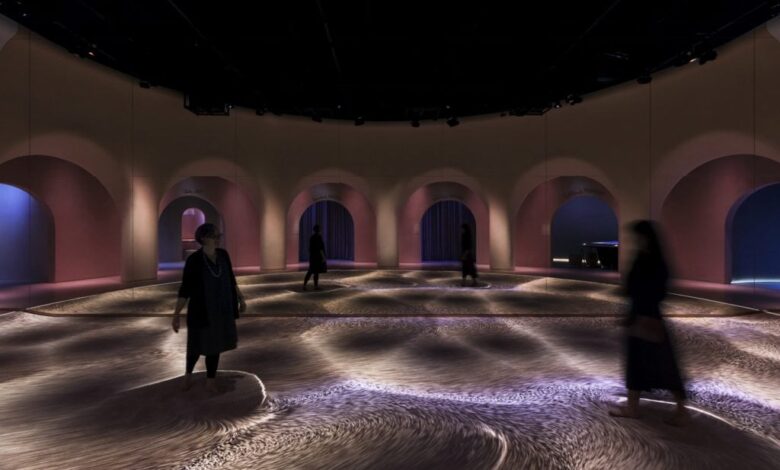
Journey of the Pioneers exhibition presents the world in 2071
[ad_1]
German studio Atelier Brueckner has created an immersive exhibition at the Museum of the Future in Dubai that aims to investigate the world in 2071.
Named Journey of the Pioneers, the permanent exhibition was created for the recently opened Museum of the Future, which was designed by local studio Killa Design.
Atelier Brueckner split the exhibition, which was shortlisted for this year’s Dezeen Awards, into three sections that aim to investigate what the world may look like 50 years from now. The sections focus on life in space, bioengineering developments and the future of well-being.
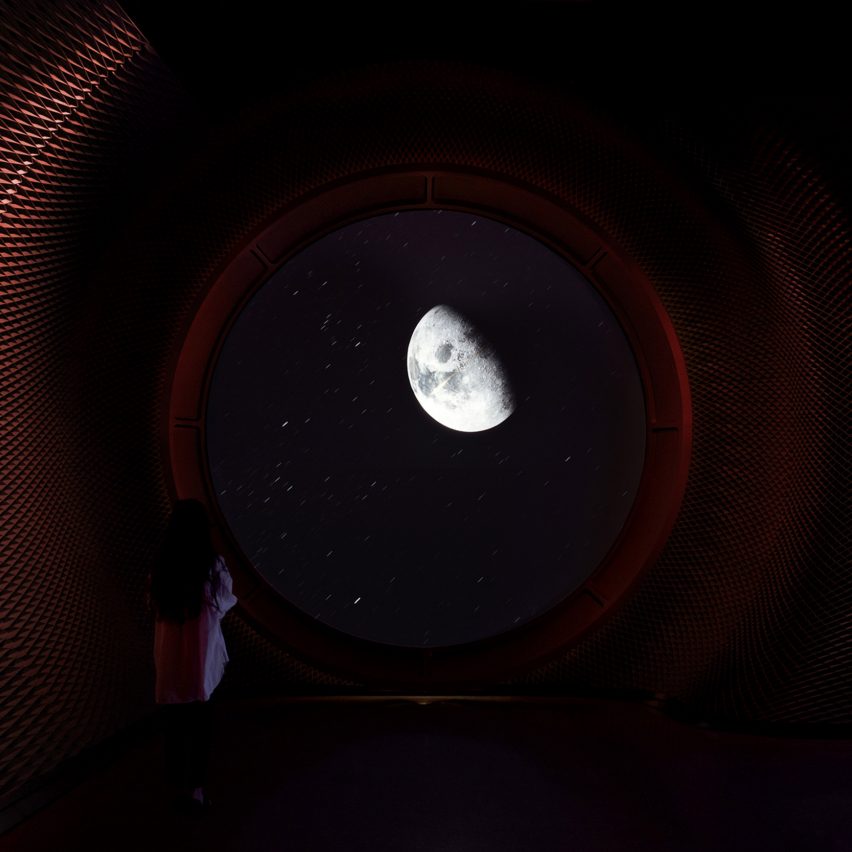
According to Atelier Brueckner, each district was designed using different materials and methods to represent their distinct but interconnected narratives.
The first district focuses on life in a space station, the second on an organisation that aims to regenerate endangered ecosystems, and the final district examines the future developments of well-being rituals.
“The experience touches on subjects and narratives that are relevant in the present day and foreseen to be still the challenges that we will face in the future,” said Atelier Brueckner.
“The experience is both informative and transformative and calls on the visitors to embark upon an expedition to a future for which they will, through individual choices, become part of a collective effort to create a better future for all humanity.”
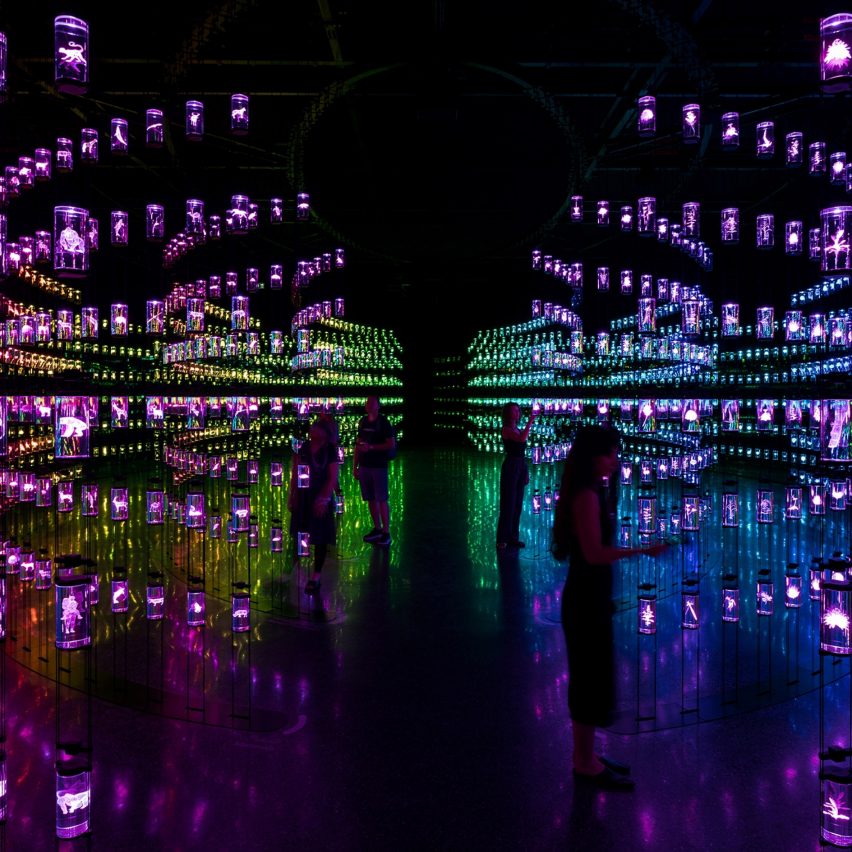
The first district presents the OSS Hope space station – the “largest man-made object in space”. Within the exhibition, visitors can look out from “space” to see a digital image depicting the Earth 50 years from now.
During the immersive experience, visitors are “recruited” to undertake a fictitious mission aligned to the space station’s overall aim – “to use the sun’s energy to provide power for mankind by harvesting it from the moon and then transmitting it down to the Earth”.
As a nod to its futuristic theme, the exhibition’s surfaces were 3D-printed, according to Atelier Brueckner.
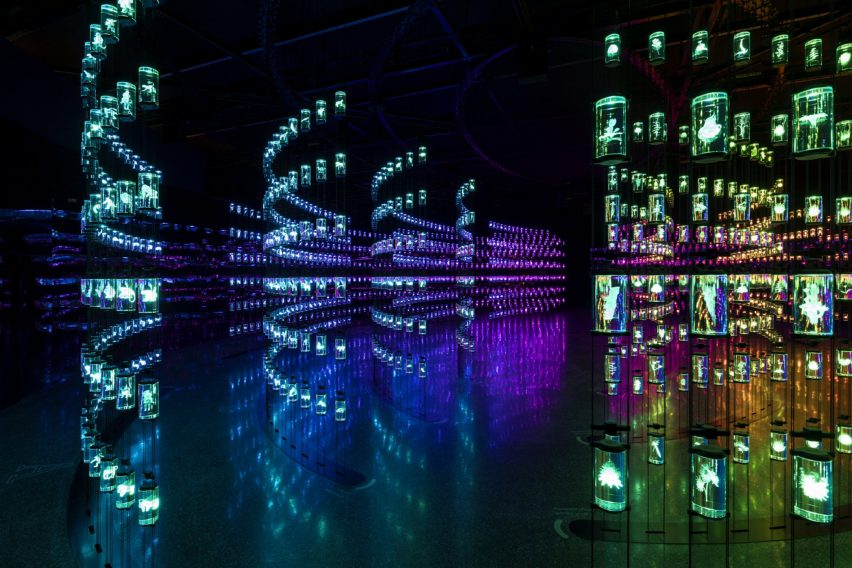
The second district is named the HEAL Institute – an organisation that uses bioengineering to help regenerate damaged ecosystems.
Also included is a “digital Amazon”, which intends to showcase how life in the rainforest is interconnected.
“In ‘the Forest’, visitors gaze upon a majestic Ceiba tree at the sound of rain, as thousands of dancing point clouds overlay the scenery with the choreographed, but invisible life, that infuses the Amazon,” said Atelier Brueckner.
This district also features The Library, which includes 2,400 laser-engraved crystal jars that represent different species. This includes single-cell organisms, plants and mammals, which will either be alive or extinct by 2071.
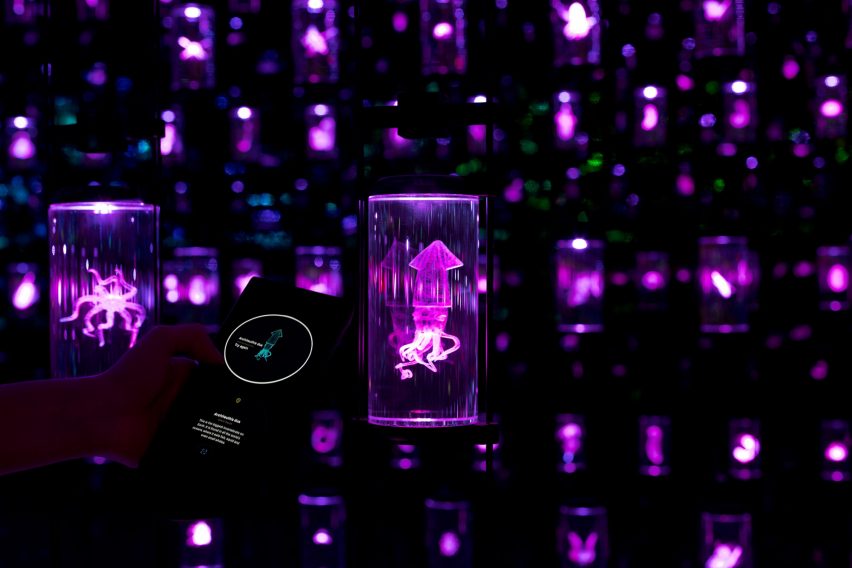
The third and final district is described by Atelier Brueckner as “the space where the pioneers encounter themselves”. It aims to be a space where visitors can reconnect to their senses while exploring what the future of well-being will look like in an increasingly technological world.
The district includes a number of therapies and treatments using technologies, such as “Movement Therapy” where visitors can explore and discover the benefit of dance. Additional therapeutic areas in the space include Grounding, Connection, and Feeling.
The district also includes “The Centre”, which is designed as a space for relaxation and contemplation, and Atelier Brueckner chose earth and clay-like tones on the district’s walls to be in keeping with its theme.
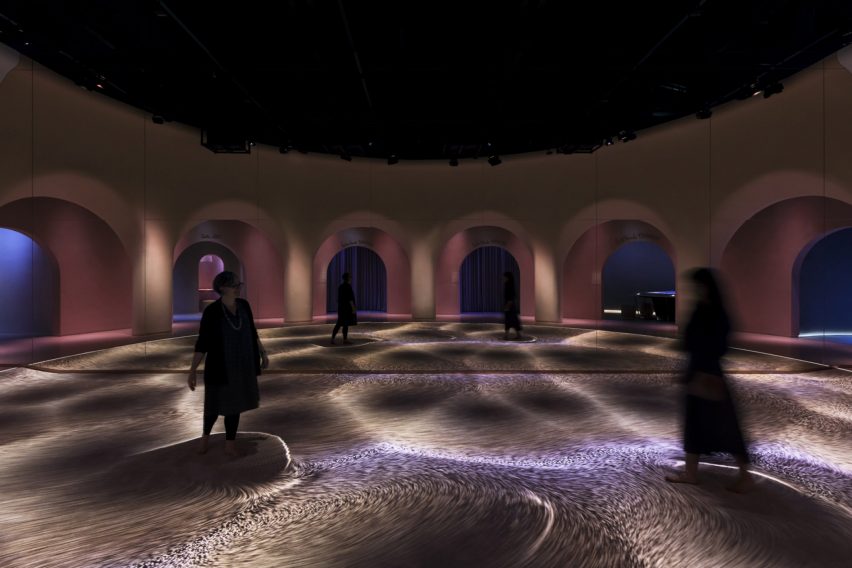
“The design approach for the whole experience was an exercise in the creation of suspension of disbelief, crafting convincing environments through the choice of materials and the overall spatial design, and through the intricate score-like staging of the various narrative & sensorial components,” said Atelier Brueckner.
“With moments of tension and moments of release, rhythmic crescendos and climaxes, and phases of decompression and contemplation.”
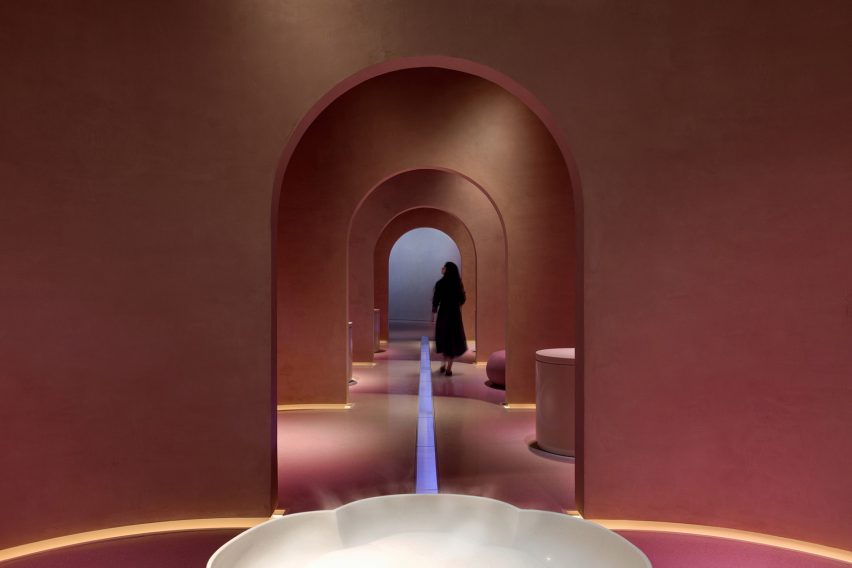
In addition to the main exhibition, the museum includes a space showcasing future innovations and products, in addition to a space with an “immersive and engaging landscape dedicated to children”.
The exhibition’s design was created in collaboration with Marshmallow Laser Feast, Jason Bruges Studios, Galerija 12, Altspace, Framestore, Superflux, Emilie Baltz, Deep Local and Certain Measures.
Journey of the Pioneers been shortlisted in the exhibition design category at this year’s Dezeen Awards alongside Ginza Ecological Map, Weird Sensation Feels Good – The World of ASMR and Greenwood Rising: Black Wall Street History Center exhibition.
[ad_2]


